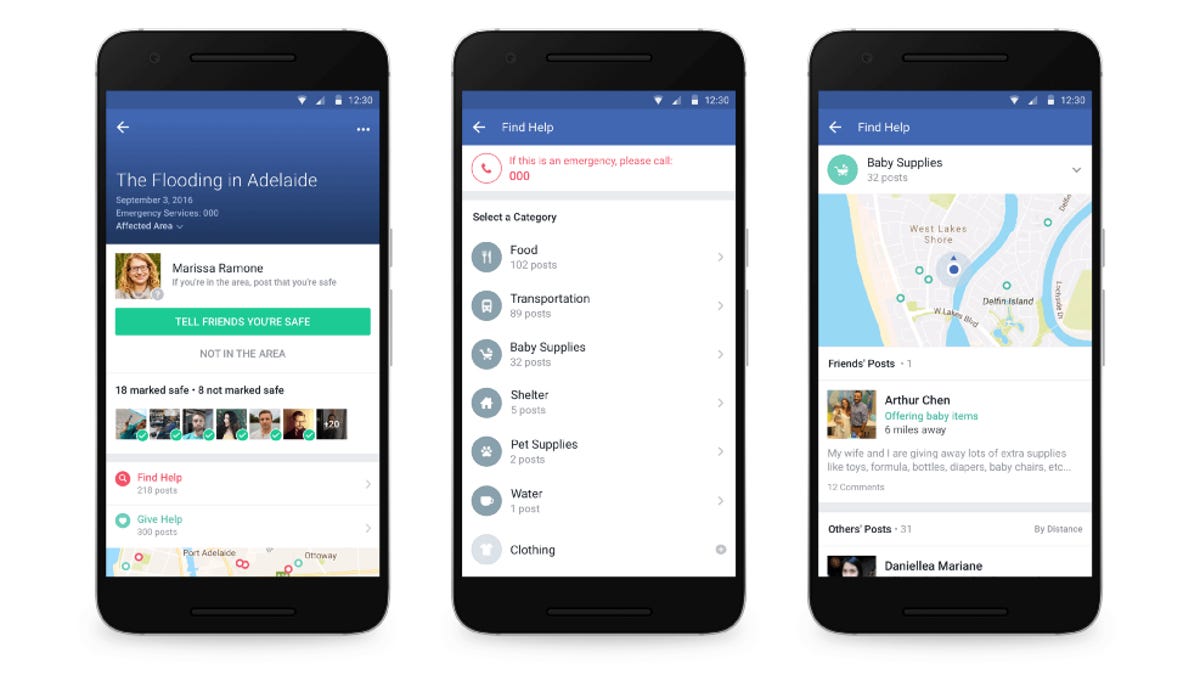Facebook will help you find food and shelter in emergencies
The Safety Check tool goes beyond just saying you're OK. It can now steer users toward vital resources -- even baby supplies.
Facebook is making Safety Check more than a tool to let people know you're out of harm's way.
The social network giant on Wednesday added a Community Help feature to the Safety Check crisis response tool. Now when people get marked safe on Facebook, they're sent to a page where they can find help or provide for those in need following a natural disaster or other catastrophe.
You'll be able to search posts by location and categories, which include food, water, shelter, transportation, baby supplies and equipment. The company previewed its Community Help expansion during its Social Good Forum in November.
The Safety Check feature has been a vital, if limited, resource during events like hurricanes and terrorist attacks, helping people find out if their loved ones in the affected area are OK.
Facebook had been criticized for its decisions on when to use the feature, so last year it said it would no longer be activating Safety Checks on its own. Instead, it would rely on user activity to automatically trigger alerts, tracking keywords indicating danger like "earthquake," "shooting" or "explosion" in concentrated areas.
Safety Check has been activated by Facebook users across the world more than 335 times.
At the November forum, Facebook said it was inspired to create the Community Help feature after seeing how its users banded together in times of emergency to help each other. But it also saw issues with missed connections, citing as an example the response to the Fort McMurray wildfire in Alberta in May 2016.
Because there were no tools like Community Help at the time, people affected by the fire made their own support groups with posts offering shelter. In one post on the "Help Together, Fort McMurray Fire" group, a man offered four bedrooms in his home for anyone displaced, while a mother was looking for shelter -- and the two never connected, Preethi Chetan, Safety Check's product designer said.
Part of the problem was that these makeshift groups were disorganized, with many different pages to join. Also, depending on a user's privacy settings, people might not even be able to contact those requesting aid.
All posts on the Community Help pages will come with a message button to let people privately chat with each other to make sure they get the help they need.
"It becomes really easy to get in touch with people in your community who you may not be friends with," Chetan said.
Community Help will be rolling out first in the US, Canada, Australia, New Zealand, India and Saudi Arabia before it's made available to all of Facebook's 1.8 billion users.
Technically Literate: Original works of short fiction with unique perspectives on tech, exclusively on CNET.
Solving for XX: The industry seeks to overcome outdated ideas about "women in tech."


